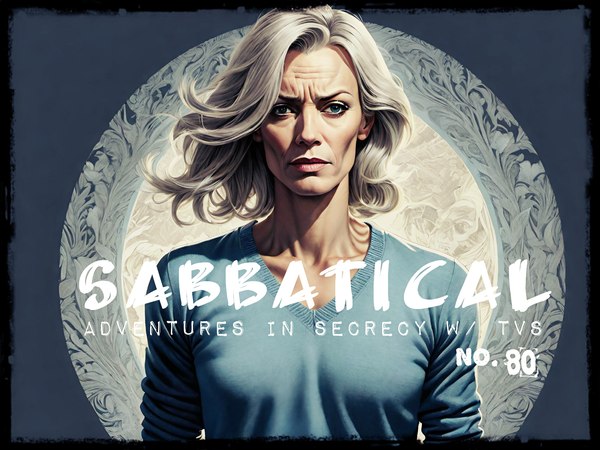Not For Certain
On the use of force
It’s easy to have a strong opinion about the use of force if you yourself have never before used violence as a solution. I have lived with violence as a solution and so, unfortunately, have some experience with the matter.
The beginning is always justified. You’re defending yourself or someone else, maybe what you think of as something else, something defenseless, like an animal or an insect. This sort of force will be nearly universally justified by other humans, perhaps even qualified as noble. I’m not saying it isn’t, only that it will almost certainly be viewed that way.
And since this use of force has worked for you, you use it again. The belief, unstated perhaps, is that this beginning state is also the end state. Because your intentions are pure, your actions righteous, and so it will continue on like this in perpetuity.
But this is not true. Violence is a contagion, and you are infected.
I’m jumping ahead, I say. Let’s go back.
Where was I? … Okay, here we go: Because your intentions are pure, your actions righteous, and so it will continue on like this in perpetuity. You believe that. Rather, you would if you knew to think of it.
There comes a time that surprises you. You use force when you didn’t exactly need to. Or maybe you thought you needed it, but the amount of force or the disposition thereof was disproportionate or ill-suited to the need. Something like that. You can apologize. You can do that, and maybe you do. But then again, maybe you don’t.
In any case, there comes another time. And another. And another. And the use of force becomes as natural as breathing. There’s nothing wrong with breathing, so what’s the matter here?
This is how I can tell your experience with the use of force. If you’re for it, you probably haven’t used it, or you’re at peak use of it. Because once you’ve broken the cycle of violence for yourself, you won’t want to return to it, and you cannot will yourself to wish it on anyone else no matter how much you may hate them.
Sure that may be true for hate, you might say. Or maybe you don’t say. Maybe you don’t say or do anything. But what about for love? Can love of yourself or your family and friends force you to use force again?
It certainly can put me in touch with the desire to. But that desire is not a fantasy for me, not anymore. So when I experience the feeling, I am aware of the chain of horrors that’s to follow.
But you haven’t had to, you say because that’s your real point.
No, I say. I haven’t had to. Not the way you mean.
So you don’t really know what you would do, you say.
No, I say. I don’t really know what I would do. I know that I don’t want to use force ever again. I know that I cannot will myself to wish that upon anyone—least of all my own future self—and that I cannot will myself to wish it upon my enemies. But I do not know what I’d do, no. Not for certain. Certainly not.
Complicity with the force of others is as bad as the use of force directly, you might say. You might not. In fact, you might not say anything or do anything.
You might add—or you might not—that it’s arguably worse to be complicit with the use of unjust and horrific force than to be a part of the noble dispensation of force in return.
Complicity requires cooperation, I say, and I will not voluntarily cooperate with the use of force.
But you will, you say. You do. You abide the use of force all the time.
Abiding is not cooperation, I say. It is toleration.
You might shrug, then, and say, Fine. You tolerate the use of force all the time.
Yes, I say. I believe I do because I know not else what to do. I cannot will myself to meet force with force again, nor will I force myself into violence once more.
But you don’t know that for sure, you say.
No, I don’t know that for sure, I say once more. Not for certain. Certainly not. Not for sure.





